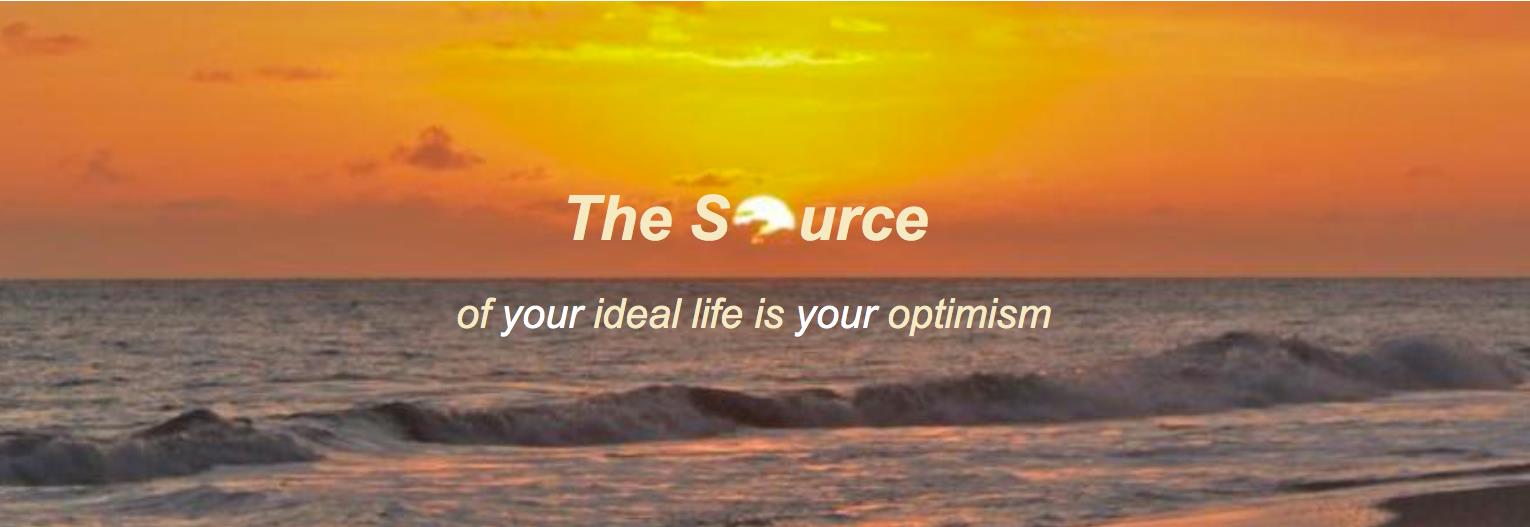|
Have you ever visited a paint store? Have you ever seen the little placards that list all the available colors of paint? The experience can be overwhelming for even the most patient and talented interior designers. Similarly, your future is a beautiful canvas of unlimited choices, characters, chapters, and changes. But how can you be expected to know which charted path is the best for you? Where can you go to find simple, straightforward advice on life? What is the best way to sift through the multitude of dreams, data, and dabbles of truth? Answers to these questions are not in the media. In this day and age of overwhelming media, there are so many facets of truth. One advertiser says Brand A is the best choice; while another advertiser spends millions of dollars telling you Brand B is the obvious choice for your money. Indeed, media is everywhere. I grew up watching commercial media on three television channels. Actually, sometimes our television would draw in a fourth channel if I could convince a sibling or a cousin to hold the TV antennae just right. Then there was the radio media and its interesting commercials. During my teenage years, television, radio, billboards, magazines, and newspapers rounded out the top five mediums of media. Today, media is everywhere. In addition to the five venues listed above, media is splashed across buses, barns, and baseball diamonds. At the professional fields there was always media presented; but now you can see media splashed across the high-school and intramural sports fields! In addition to televisions in employee break rooms, many businesses now have televisions in the lobby. Stores, big and small, provide television-watching as a welcomed alternative to leaving the store earlier than usual. As we become more mobile, the availability and integration of media continues to parallel our own mobility. Our very own personal cell phones are already well integrated into almost everything we do. At the train stop, bus stop, and at every stoplight in between, everyone has his or her nose buried into the handheld screen. And as the personal computer continues its seamless morphing into our lives, media will not only follow us from home to work, and then back home again, it will soon dictate what is most important in our lives. Before departing the office, many people already synch their cloud “homework” files to their home computer instead of carrying them home inside a briefcase or satchel. Drivers already use cell phones as personal navigation devices (PND) to find the best route from Point ‘A’ to Point ‘B’. Many PNDs warn drivers of impending traffic jams and recommend alternate routes. Our mobile phones now advise us of the best place to stop and eat along the way... more media to pay attention. Along the route to work, there are electronic toll plazas where no money is necessary, as long as your personal electronic account has sufficient funds. At some point, however, as you stop to refuel your vehicle, try not to notice the media begging for your attention at the gas pump. Think about it: before you arrive at your destination, your mind has already made hundreds, if not thousands of decisions on what to do, what to think, and where to go. I currently work in an office environment located about thirty minutes from where I live. In the morning, the commute provides an opportunity to reflect on the day ahead, as well as listen to a few favored Podcasts and audiobooks. On the way home, I use the time to wind down. I usually try to focus on my family, and I try to forget about all the meetings I attended and the numerous e-mails I sent and received throughout the course of the workday. In general, I like the ease of e-mail. It is a great communication medium. Interestingly enough, when I was an active duty naval officer, I placed a philosophical quote in the signature line of my email. Regardless of the subject or recipient of my e-mails, I included one simple directive: “Choose your superlative; everything else naturally follows.” This tag line is not so much a directive as it is a revelation. A superlative is something that cannot be toppled. It is the best; the most; the highest; the deepest; the longest; and the surest. Here is the revelation: you make important those things that are important to you. Perhaps this may not sound like much of a revelation. However, many men and women say, “Family is important.” Yet they spend all day at work, away from family. Thus, for the guy who spends most of his time at work, family may or may not be the MOST important thing to him, relatively and realistically speaking, Some people say they want to live a healthy lifestyle, yet they do absolutely nothing to advance their style of life in a healthier direction. Thus, the cigarette smoker who spends countless hours inhaling smoke through a paper straw of smoldering, toxic tobacco cannot seriously say that a healthy lifestyle is important to her. On the other hand, every person is in absolute control over the choices he or she makes in life. As a result, the workaholic can change his ways and make his family more important; he can simply curtail his hours at work. Will his wages subsequently decrease? Perhaps. But what is more important: high wages or a loving, close-knit family with a near and dear father? Long hours at work and a high-paying job are certainly not to be frowned upon. Just don’t confuse the high priority of a great salary with the relatively low priority of a greater family. Likewise, those who want a healthier lifestyle can have a healthier lifestyle… if (and only if) they make it important. You are in absolute control over your choices in life. Others may provide input and influence. But... Decisions are yours alone to make. Consequently, as stated earlier, you make important those things that are important to you. Random things, indiscriminate people, and arbitrary places are simply not important to random people. Similarly, there are some mothers who do not receive Mothers’ Day cards from their children. For whatever reason, Mother’s Day cards are not important to the children of those mothers. Likewise, there are some children whose healthy lungs are simply not important to their parents who smoke. Oh, sure: the children are important; but the cigarettes are MORE important. Accordingly, I not only advise you to make important those things which are important, but I also suggest that you choose your superlative because everything else, by definition, naturally follows your first, highest choice. Remember: a superlative is something that cannot be toppled. It is the best, the most, highest, the deepest, the longest, and the surest. Your specific superlative is what you decide to put above anything and everything else. Ask yourself, “What choices have I made regarding my first, second, and third priorities in life? Who plays first fiddle in my life? Who plays second fiddle? For what person or event do I have the greatest respect? Above **ALL** else, what matters to me?” What is your CHOSEN superlative? In reality, you alone make conscious and subconscious choices every day. If you have a job, you consciously make the choice to leave your home and go to work; or you decide to stay home. If you drive to work, you may consciously decide to listen to a specific radio station, CD, or audio book. When you eat breakfast, lunch, and dinner, you decide what, when, and where you will eat. Some may argue that some of these decisions are made for you. Work sites, for example, may offer a cafeteria. Thus, some people would argue that they do not have the choice to eat where they want. However, the existence of the cafeteria does not force you to eat there. Likewise, the mere existence of your job does not command your presence; the music you listen to does not accidentally grasp the inner receptors of your ears. Consequences and repercussions aside, YOU are the only person who decides what YOU do. Indeed, there are a great many influences affecting you and your life. However, you (your “self”) have more to do with your life than anyone or anything else. Regardless of what happened to you yesterday, yester-week, and yester-year, you choose what you will do today. You decide which button to push. And it is just… that… simple. Death, divorce, and dangerous weather conditions can all lead to traumatic, life-changing events. However, you don’t have to actually wait for a huge tragedy to affect your life in a profoundly great way. You can have a life-changing event as soon as you finish reading the next two lines! Your life-changing event starts with one simple choice: Choose YOUR superlative. Everything else is secondary, tertiary, quaternary, quinary, senary, septenary, octonary, nonary, denary, and so on, and so on... Accept. Adapt. Achieve! ® John H. Clark III is an optimistic realist. He believes better development of leaders is what we (all) need. And to be better organizations, we need more good leaders, not followers. To build better leaders, we must start with the individual (you, she, he, and me). Described as “an innovative leader,” John teaches leaders, organizations, and individuals how to inspire each other. With a bold goal to inspire a worldwide community of optimistic realists who continuously accept, adapt to, and achieve the bold and beautiful concept of The Ideal Life, John is leading a movement to inspire people to apply his trademarked mantra {Accept. Adapt. Achieve! ®}. An innovative business manager and retired naval officer, John is fascinated by leaders and organizations that make the greatest impact within their organizational culture and within the “real” world — people who “get it.” Over the course of his life as a military leader, corporate mentor, and innovative content creator, John has discovered a wealth of insight about how we think, act and communicate within our respective work/life environments. As a career naval officer, mentor, educator, and optimistic realist, he has devoted his life to sharing insights to assist in our quests to become better at what we all do – live @ work! An optimist with a penchant for writing about realistic solutions to the challenges of everyday life, John is the author of 3 books: a leadership-development insider, "The Ideal: Your guide to An Ideal Life," a teen-focused guide, "Getting Out: Expert Advice for Today’s Teens," and the Christian-based book, "God’s Heartbeat: A Powerful Premise for Leading a Christian Life."
He delivers a unique and refreshing point of view to life's seemingly overwhelming situations. Through books, blogs, and everyday conversation, John's message resonates with an empowering blend of ideals that enrich, uplift, and “authorize” people to set and achieve goals far beyond current mindsets. His trademarked phrase is a winner: |
My purposeInspiring a worldwide community of optimistic realists. Archives
April 2024
Categories |




 RSS Feed
RSS Feed
